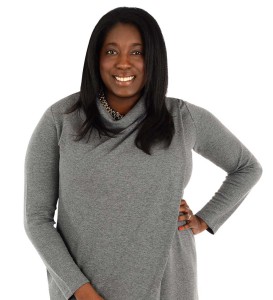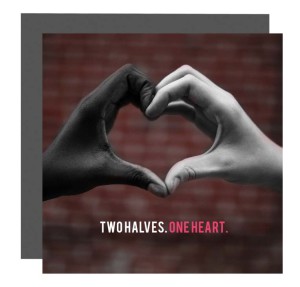October is Black History Month in the UK, which a great time to consider the importance for retailers and publishers to reflect on the part we all play in becoming an inclusive and diverse industry.
How we select and buy into a brand or product reflects our own identity and values. Nowhere is this clearer than in the way we choose which greeting cards we use to commemorate, celebrate and reflect a sentiment.

Greeting cards are one form of communication we willingly choose to bring into our homes or bestow on others. Unfortunately, the fact that the majority of UK greeting cards producers and retailers have failed to service a huge proportion of modern society reflects more than just a loss of commercial opportunity. It represents and reinforces the accepted norms, perceptions and stereotypes of what loving relationships should be: romantic, white and heterosexual. And this is despite the fact that other publishing mediums, such as the book publishing industry are already making strides in ensuring equal representation.

As a black woman married to a white man, I would say I am like millions of other couples the world over. Yet, when I shop for a greeting card to celebrate our anniversary, I feel like I must be the only person on the planet in this situation. Where people of colour have won many social victories in relatively recent history, it’s crazy to see that it is still so hard to find a card that reflects a significant proportion of modern society.
The greeting card industry (as well as the gift trade) has still yet to wield some serious clout in promoting minority group interests and engaging meaningfully with this audience. And so it should. The purchasing powers of minority demographics are regarded as a substantial asset to the UK economy.
Despite arguments to the contrary, the UK has been enriched by immigration. A lucrative market awaits those businesses that get their engagement and product design right. However, the reality is that many are still missing the mark. For example, you need only look at Valentine’s Day to see romantic, white and heterosexual love take precedence over any other kind of relationship.
In the wake of increasing racial tensions brought about by political upheavals around Brexit and a new Trump presidency, greeting card design really can be used to subtly stand up to unconscious bias. This might seem like a sweeping statement – but the card sector has the power to challenge the norms and effect positive social change.
The greeting cards arena is just one way we can restore optimism and fight a waning sense of hope by challenging stereotypes that prevent modern society from achieving diversity and acceptance on every level. In the current face of the wider greeting cards market, it is true that progress is still in its infancy, but the potential is exciting.

While some high street retailers have started to embrace diversity by carrying cards of different races and sexualities such as Scribbler – I encourage retailers and publishers alike to set the gold standard for card design that is representative of the colourful and socially diverse world in which we live in today. Anything less is a disservice to the modern consumer.
* Huetribe is a greeting card publisher focusing on celebrating diversity through representations of LGBT+ and interracial couples as well as people from various backgrounds and ethnicities. The company was an award-finalist for the 2017 PRECIOUS awards and has been featured in media outlets such as the BBC, Mashable, Huffington Post, Yahoo and many more. Huetribe was named an ‘innovator’ in the industry by Mintel’s 2017 research and has partnerships with organisations such as Manchester Pride and The Albert Kennedy Trust.
Top: Huetribe is one publisher who is encouraging diversity on cards.





















